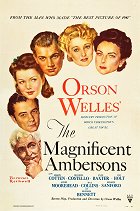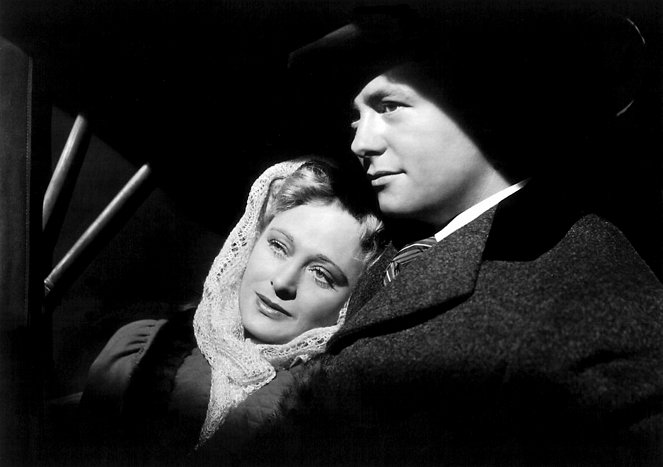Directed by:
Orson WellesScreenplay:
Orson WellesComposer:
Bernard HerrmannCast:
Joseph Cotten, Dolores Costello, Anne Baxter, Tim Holt, Agnes Moorehead, Ray Collins, Erskine Sanford, Richard Bennett, Orson Welles (narrator), Nancy Gates (more)VOD (1)
Plots(1)
Orson Welles’s beautiful, nostalgia-suffused second feature—the subject of one of cinema’s greatest missing-footage tragedies—harks back to turn-of-the-twentieth-century Indianapolis, chronicling the inexorable decline of the fortunes of an affluent family. Adapted from an acclaimed Booth Tarkington novel and characterized by restlessly inventive camera work and powerful performances from a cast including Joseph Cotten, Tim Holt, and Agnes Moorehead, the film traces the rifts deepening within the Amberson clan—at the same time as the forces of progress begin to transform the city they once ruled. Though RKO excised over forty minutes of footage, now lost to history, and added an incongruously upbeat ending, The Magnificent Ambersons is an emotionally rich family saga and a masterful elegy for a bygone chapter of American life. (Criterion)
(more)Reviews (3)
At the time it was made, it was an above-average film both thematically and in its execution, but I find its reviews to be quite exaggerated. Essentially, it's a classic studio romance with the necessary happy ending at the end. But that's how it goes; famous directors have it easier with fans. If I overlook a few cuts and camera movements, Orson Welles didn't significantly impact the film. Overall impression: 55%. The film might be interesting for its perspective on the beginnings of motorism in the United States, with the prophetic commentary of Eugene Morgan.
()
It is quite recognizable that it is a film by Orson Welles, there is excellent camera work, a well-structured screenplay, and great acting, but unfortunately, it is somehow everything that left me rather cold. Perhaps I will have to give the film a second chance later, just like I did with "Citizen Kane".
()
I have no doubt that the original director’s cut was a polished gem, but unfortunately, I must rate only the shorter version, which is not bad and clearly shows the revolutionary touch Welles had for staging and lightning the mise-en-scène, and yet I cannot ignore the fragmentary impression it gives; it takes quite awhile for the viewer to fully get their bearings around the characters and their relationships. But I think it’s unfair to be more critical, both because of the suppression of Orson’s full vision and also because of the unarguable narrative qualities The Magnificent Ambersons has retained despite the meddling of the studio.
()


Ads